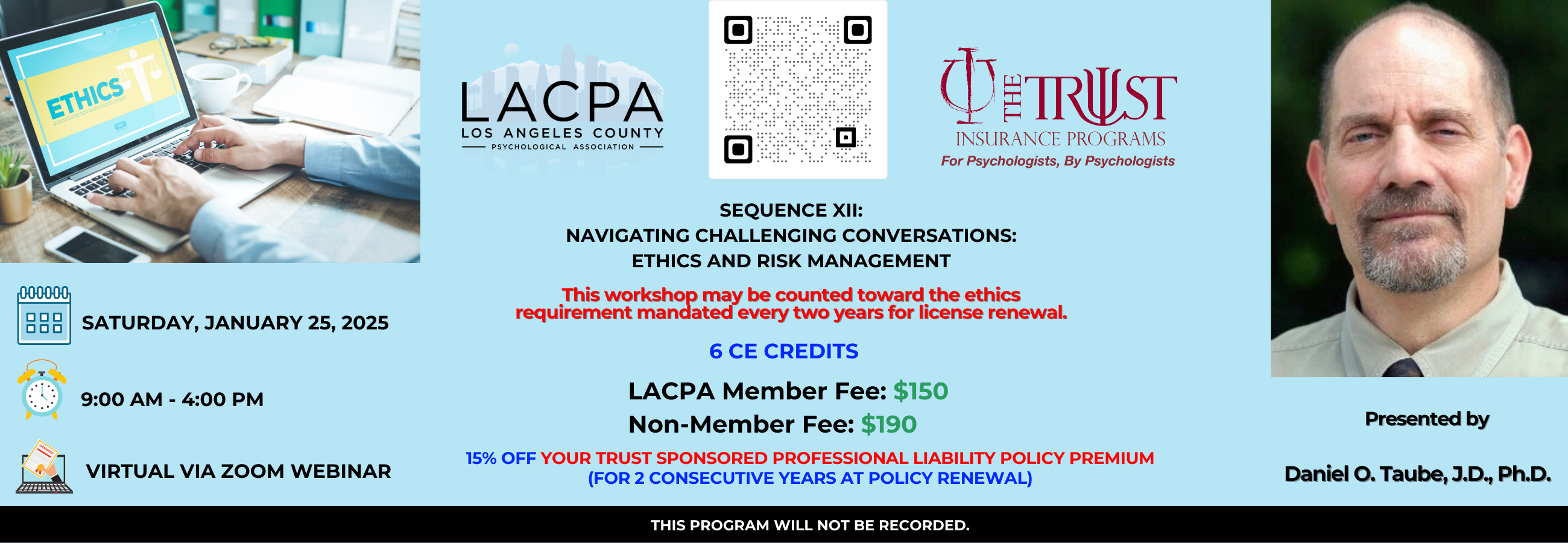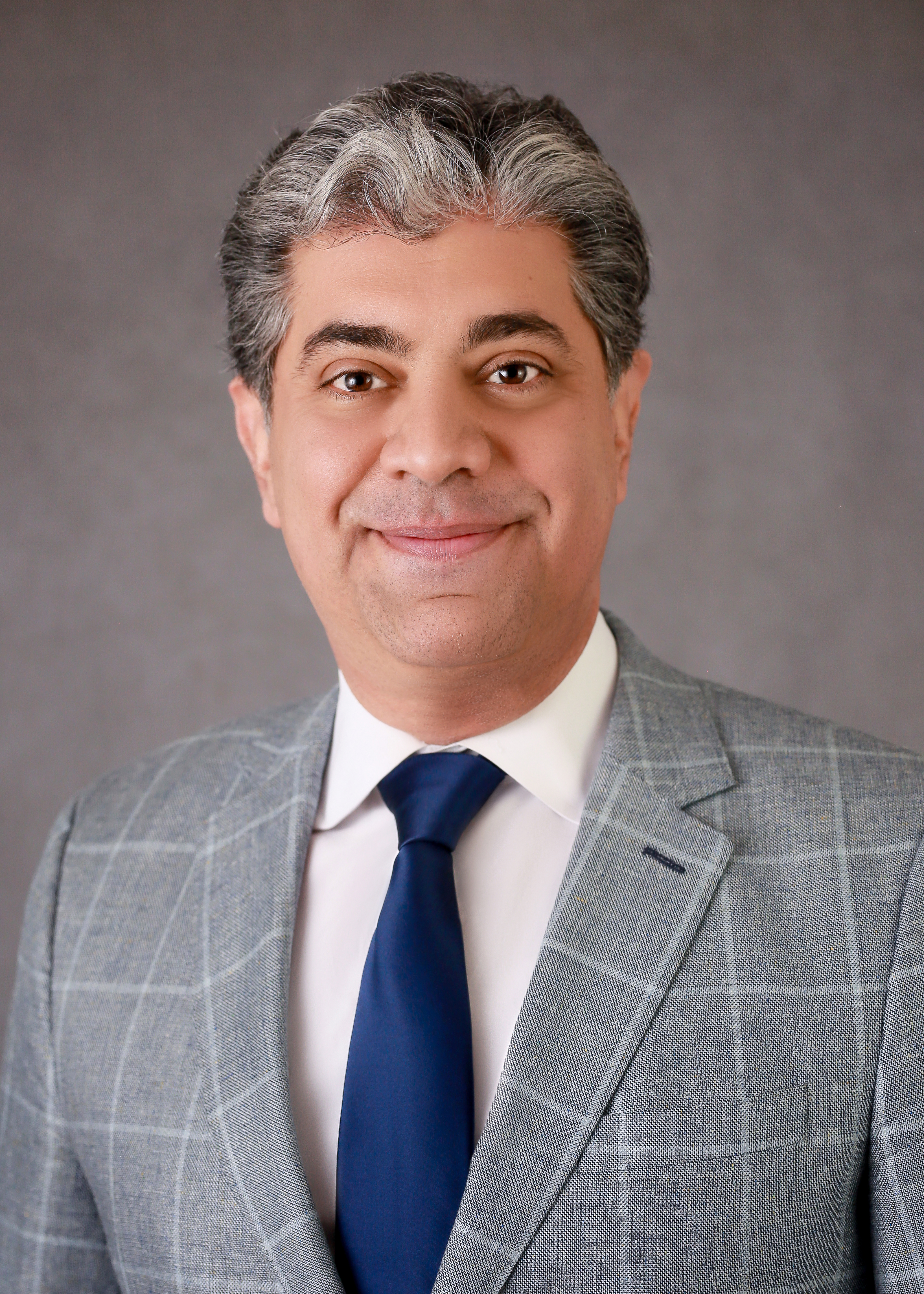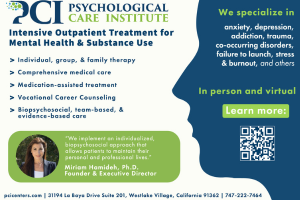|
Summer 2024 Presidential Column
Peyman Raoofi, Psy.D. As I reflect at the half-year mark as President of LACPA, I am reminded of the profound impact we can each have when we leverage our expertise for the betterment of others. I am also keenly aware that affecting meaningful change is not the work of a solitary individual. It truly does take a village. The collaborative effort of dedicated individuals, each contributing their unique skills, perspectives, and passions to advance our shared goals,
is required. I appreciate all of you who have come to the table with open minds, creative ideas, and ready to collaborate.
Our presidential event in early April was a success with both LACPA members and non-members in attendance. Among the participants were six of LACPA’s past presidents, as well as six committee chairs or community leaders. We gathered to reflect on our work within the organization. I discussed my theme “Mental Health as a Universal Human Right” and brought attention to our responsibility as psychologists to center social justice and advocacy in our practice.
Given recent global events, we have seen that mental health access must be a “given.” With May being National Mental Health Awareness Month, we have been able to further focus our efforts on the crucial importance of mental health as a fundamental human right. Throughout Mental Health Awareness Month, a diverse array of organizations, communities, and individuals united in a shared mission to promote understanding, offer support, and combat stigma surrounding mental health. In this spirit, we collaborated with the Los Angeles Public Library and convened at the West Valley Regional Library to address the pressing issue of mental health access and to help shed light on the pervasive inequities within mental health care. Our gathering served as a platform to engage in meaningful dialogue, share insights, and advocate for change.
At the California Psychological Association Lobby Day in late April, our primary objective was to amplify the voices of psychologists and the individuals they serve. In Sacramento on that day, our advocacy efforts revolved around the fundamental principle of recognizing mental health as an essential human right, and compelling policymakers to enact meaningful reforms. Central to our advocacy agenda was the urgent call for policy adjustments aimed at prioritizing the allocation of sufficient resources to mental health services. We demanded the expansion of the mental health workforce to increase access to mental health treatment. We also advocated for the integration of mental health education across diverse sectors of society. Specifically, LACPA has supported five legislative bills geared towards enhancing access to critical mental and behavioral health services for patients, in addition to making it easier for psychological associates to get licensed, thereby diversifying the pool of qualified providers.
A heartfelt thank you goes out to our Community Outreach Committee for their dedication and hard work. Through their efforts, we were able to actively engage in two significant events: the Annual Valley Day of Service hosted by Assemblymember Jesse Gabriel at Los Angeles Pierce College and the Haven Hills Health Fair for Sexual Assault Awareness Month. At these events, we were able to both inform the community about mental health and show the benefits of joining LACPA. We also took the chance to explore potential collaborations with other organizations in attendance.
Finally, I am eagerly anticipating the insights and expertise of our keynote speaker at this year's Convention,
Derald Wing Sue, Ph.D. His discussion on racism within psychotherapy promises to be enlightening and impactful, shedding light on an essential aspect of mental health care that demands our attention and action. I am deeply grateful for the support, collaboration, and commitment of everyone who has been part of this journey thus far. As we continue this path, let us remain committed in our dedication to serving others, empowering those in need, and fostering a community of compassion, resilience, and inclusivity. Together, we can make a lasting and positive impact on the lives of those we serve. |














